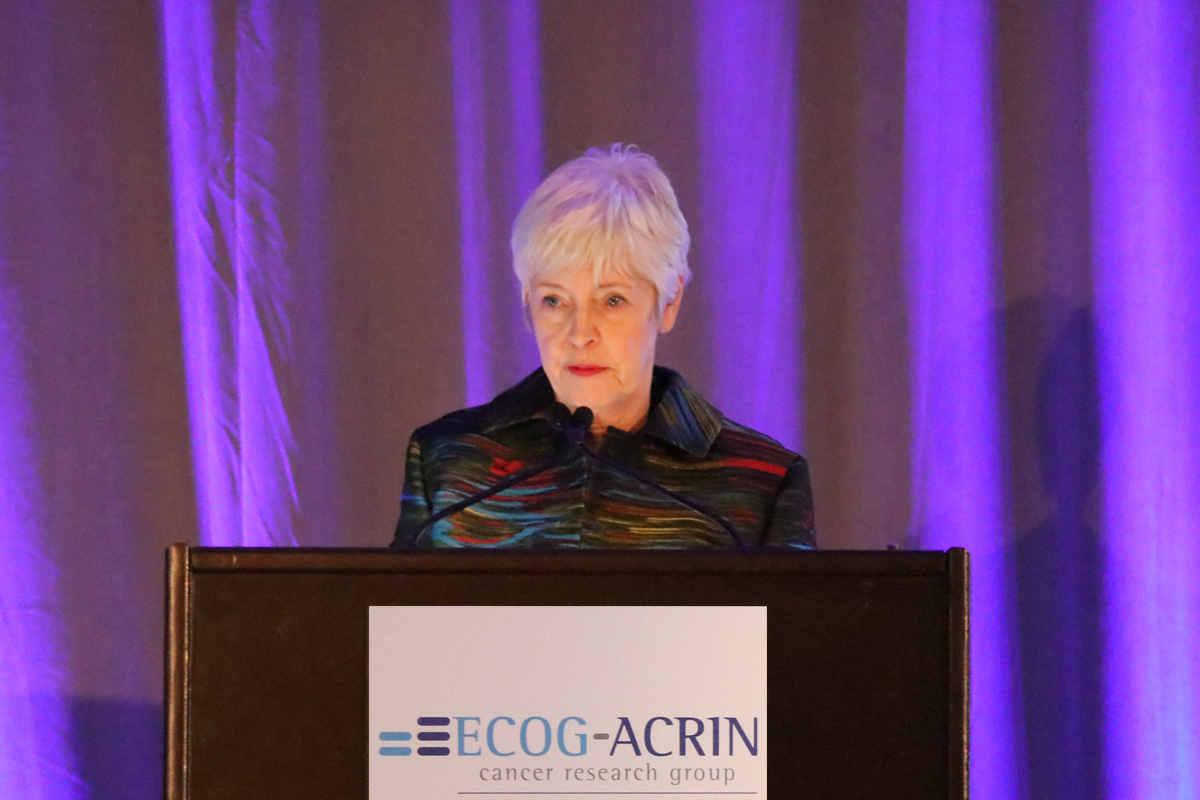
Advocacy and the NCI’s National Clinical Trials Network
June 24, 2021
Ongoing Trial: The INDICATE trial is testing ways to personalize treatment for men with prostate cancer that returns after surgery
September 20, 2021Trial Results: Recent ECOG-ACRIN research

Over the last several months, ECOG-ACRIN researchers have published papers in medical journals and presented at medical meetings on a wide range of topics.
- Breast Cancer – A new review article brings together research over the last 15 years into the differences in survival between Black and white women with breast cancer in the United States. It highlights critical discoveries from clinical trials, several by ECOG-ACRIN. For example, research shows that breast cancer patients of African ancestry are 41% more likely to die from breast cancer than white women. In addition, Black women who take chemotherapy drugs such as docetaxel or paclitaxel are at higher risk for nerve damage and pain (medical term, peripheral neuropathy) than white women. Also, Black women have their chemotherapy doses lowered more often due to nerve damage/pain, and less treatment contributes to worse survival (Schneider BP. JCO Precis Oncol. 2017). Currently, ECOG-ACRIN is enrolling Black women with breast cancer in a clinical trial (EAZ171) studying ways to prevent nerve damage from chemotherapy. The review article provides the background, data, and context for the EAZ171 trial and other current research. Ballinger TJ. Curr Breast Cancer Rep. May 2021
- Breast Cancer Survivorship – The ways that women who have survived breast cancer cope with thoughts, worries, and feelings about cancer may affect their health. Women who had survived breast cancer and were 3 to 8 years post-diagnosis answered questions about distress (depression and anxiety), coping through avoidance, and physical, psychological, and social wellbeing. A significant number of these women showed signs of coping through avoidance (attempts to avoid thoughts, feelings, and reminders of cancer). Avoidance may indicate the risk for, or presence of, distress among breast cancer survivors. Addressing unhelpful coping strategies, such as avoidance, may disrupt relationships between distress and wellbeing. Interventions to reduce depression and anxiety may be more effective when they include measures to address avoidance behaviors. Cohee AA. Psycho-Oncology. March 2021
- Cancer Treatments in Pill Form – About one-third of today’s cancer treatments are taken orally (by mouth). Also, many cancer treatments in the pipeline are being developed only in pill form. Patients get charged for the preparation and administration of the drug even though it is oral. Patients also need to be aware that insurers require the prior authorization of most oral cancer drugs, which delays treatment. As the use of oral cancer therapies increases, many doctors' and nurses' traditional responsibilities have moved more directly to patients and caregivers--like monitoring how patients stay on treatment and identifying toxicities. Patients on oral treatments need to adhere to complex dosing regimens that may frequently change due to toxicities. Patients may also be uncertain about interactions with other prescription medications or supplements and how to manage late or missed doses. ECOG-ACRIN researchers are studying this important issue. For example, a new report from the ASSURE trial (see Kidney Cancer below) provides important information to help oncology care teams supervise patients and deliver high-quality cancer care. Murphy CC. Cancer Med. August 2021
- Kidney Cancer – The drugs Sutent® (sunitinib) and Nexavar® (sorafenib), both given in pill form, are each FDA-approved and widely used on their own to treat advanced (metastatic) kidney cancer. However, the results in 2016 of the ASSURE (E2805) randomized phase III trial showed that these drugs are not effective in preventing patients with early kidney cancer from having the cancer return after surgery (Haas NB. Lancet 2016). Recently, researchers studied the subset of E2805 patients with sarcomatoid renal cell carcinoma—a rare and aggressive form of kidney cancer with a poor prognosis. Neither drug improved disease-free survival or overall survival in this sub-group. Karam JA. BJU Int. September 2021
- Lung Cancer Screening – Since the National Lung Screening Trial (NLST) results, medical guidelines recommend that people at high risk for lung cancer get low-dose computed tomographic (CT) screening every year (Aberle DR. N Engl J Med. 2011). The NLST showed that low-dose CT reduces mortality. Once in a while, a CT scan will show a mass in the lung, but it is not clear if it is cancer or not. The problem is that the only way to find out is through a biopsy. Researchers from ECOG-ACRIN continue to study this problem using data and images from the NLST and other trials. Recently, they reviewed a subset of patients in the NLST trial with an unclear lung mass on a CT scan that turned out not to be cancer. Indeed, looking back at these cases, they confirmed that the location of the mass in the lung can help predict malignancy. They suggest that performing this simple assessment could potentially prevent unnecessary biopsies. Kinsey M. J Thorac Dis. July 2021
- Publicly-Funded Research – Many, many cancer treatments that doctors widely prescribe today may never have become available to patients without public funding. A new report estimates that over the past 40 years, people with cancer in the United States gained 14 million years of additional life thanks to cancer clinical trials funded by the National Cancer Institute (NCI) through its National Clinical Trials Network (NCTN). Authors identified 128 randomized phase III treatment trials from 1980 through 2019 where the experimental arm showed either a statistically significant improvement in overall survival time (91 trials) or a trend toward improved overall survival (37 trials) for patients. They estimated the additional life years by mapping the gains from these trials onto data on the overall US population of people with cancer. In September, lead author Joseph Unger, PhD, presented the results at the European Society for Medical Oncology's Congress 2021. Press Release

